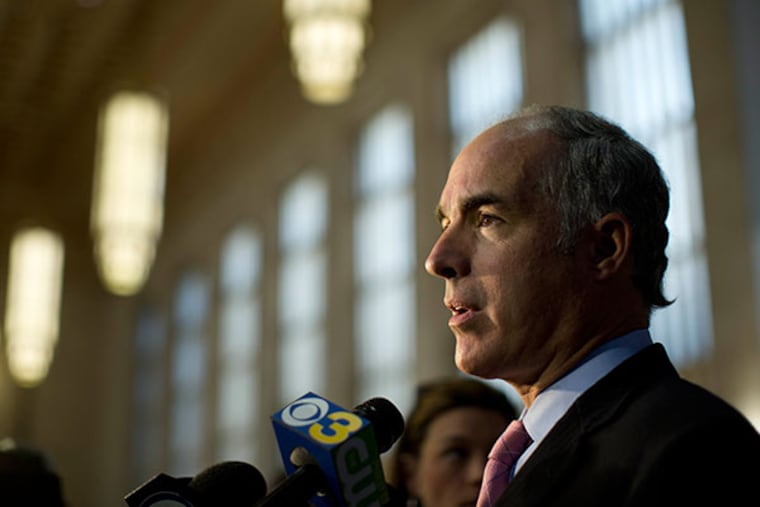Hunger games begin with food-stamp cuts
HARRISBURG - Food-pantry organizers and others who help feed Pennsylvania's hungry are bracing for the effects of reduced federal funding for food stamps, with some wondering how their organizations are going to find the donors or volunteers to fill the gap.

HARRISBURG - Food-pantry organizers and others who help feed Pennsylvania's hungry are bracing for the effects of reduced federal funding for food stamps, with some wondering how their organizations are going to find the donors or volunteers to fill the gap.
The reduction took effect Friday. It means a 5 percent drop in the $80 billion-a-year federal program, or about $36 less a month for a family of four, down to $632 a month. That will translate to a loss of about 20 meals a month for a family of four, said Joe Arthur, of the Central Pennsylvania Food Bank. In Pennsylvania, 1.8 million people receive food stamps.
"People are going to be hurting because of this," Arthur said. "There's no doubt in my mind that some families are going to be hungrier."
The reduction is the result of the expiration of a temporary benefit in the 2009 stimulus. Pennsylvania U.S. Sen. Bob Casey, a Democrat, is pressing for legislation that would extend the benefit another year. But the debate in Congress is going the other way, with a bill passed by the GOP-controlled House that would cut food stamps an additional $4 billion annually and the Democratic-controlled Senate proposing a cut of a tenth of that amount.
"It just befuddles me that people can vote down food stamps," said Sister Sandra Lyons, director of the Bernadine Center in Chester, where dozens of families come for hot meals and food from the pantry.
Lyons, chairwoman of a Delaware County interfaith network of 12 food pantries, said the groups have been sending letters to members of Congress advocating for food aid, so far without luck.
She, like others, expects more people to come in search of a meal at a time when the recession has left a donor network stretched thin and people in need more than ever.
The cost of food is rising, governments are cutting assistance programs, middle-class families can't donate so much, more people in low-wage jobs can't make ends meet and cost-conscious food manufacturers have less to donate, say food-pantry organizers.
As a result, the food-pantry system that used to be an emergency network is now a supplemental part of how Americans are fed, especially as food-stamp aid is reduced, Arthur said.
"We will appeal to our donors, we will do whatever we can to raise more food and more funding to at least mitigate the effect, but my honest assessment is that . . . I just don't think the charitable food network can make it up," Arthur said.
The cut means a loss of $183 million a year in food subsidies in the state, Arthur said. In 2012, nearly 870,000 Pennsylvania households had an average monthly benefit of $266.
Pastor Rick Crocker, whose Erie City Mission kitchen prepares 400 to 450 meals a day, said he expects higher demand at both the organization's public-meal and food-pantry mission, and he anticipates that his organization will find a way to meet it.
"I'm expecting through the generosity and kindness of people who support this ministry that we will be able do to so, even with increased demand," Crocker said.